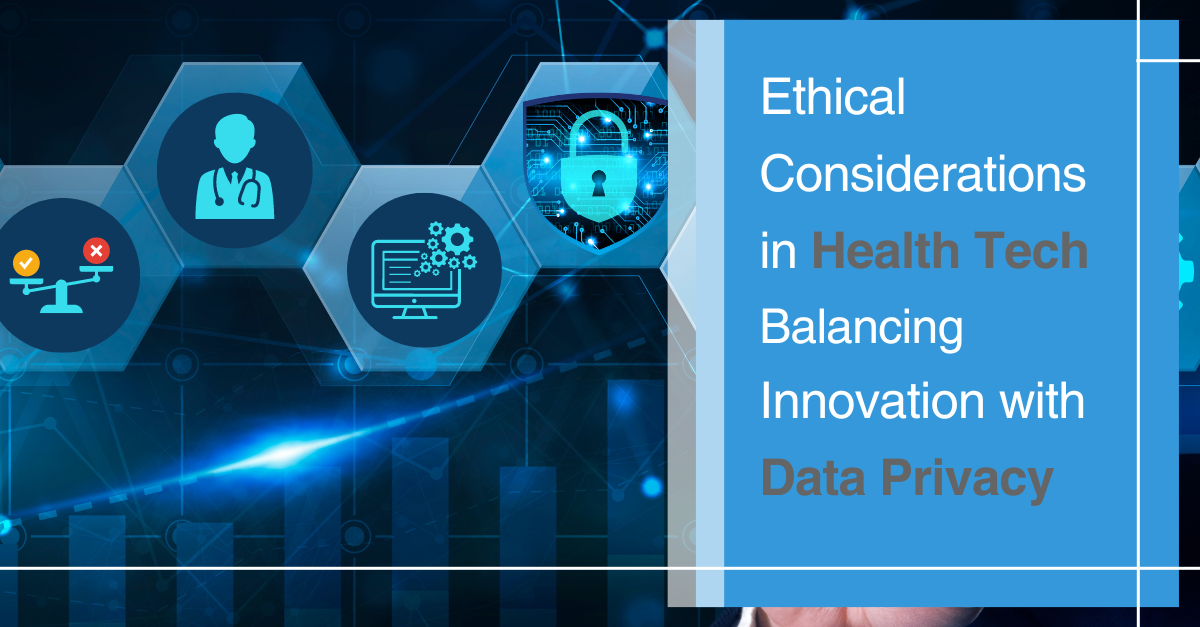Understanding Health Tech
The integration of technology into healthcare, commonly referred to as health tech, has brought about revolutionary changes in patient care and medical research. However, this rapid innovation raises significant ethical concerns, particularly regarding data privacy.
Understanding Ethical Considerations in Health Tech
Ethical considerations in health tech includes a range of issues, including data privacy, consent, transparency, and fairness. Ensuring patient data is protected and use responsibly is fundamental to building and maintaining public trust. Ethical practices not only safeguard patient rights but also contribute to the credibility and reputation of health tech companies.

Data Security
Ethical considerations in health tech includes a range of issues, including data privacy, consent, transparency, and fairness. Ensuring patient data is protected and use responsibly is fundamental to building and maintaining public trust. Ethical practices not only safeguard patient rights but also contribute to the credibility and reputation of health tech companies.
Informed Consent
Informed consent is vital in healthcare, ensuring patients understand the risks and benefits of medical procedures or research. In health tech, it includes informing patients understand the risks and benefits of medical procedures or research. In health tech
Transparency in AI Algorithms
AI in healthcare offers better diagnostics and treatments, but transparency in AI algorithms is essential for trust. Patient and provider need to grasp AI decision-making processes. The GDPR allows patients to request explanations for AI decisions.
Recommendations:
To achieve a balance between innovation and data privacy in health tech, the following recommendations are proposed:
- Secure Data Sharing Protocols:
- Incident Response Planning:
- Third-Party Vendor Oversight:





